CAME Wooster Family Grant in Medical Education
Clinical faculty members in the first seven years of their initial faculty appointment in a Canadian health sciences faculty (or equivalent).
Award Amount: $ 5000.00
Our Health Professions Education Grants are now open!
The Health Professions Education Grants Full Proposal submission deadline has been extended to Sunday, January 26, 2025 at 1700 EST!bmission Deadline: January 19, 2025
Our adjudication committees are looking forward to reading your submissions!
Successful applicants who have been selected to submit a video will be notified on February 15, 2025 via email.
Purpose
Opportunities for peer-reviewed grant support in Health Professions Education are limited. Learners and faculty at all stages, who have new projects, can face challenges in obtaining support. The CAME Foundation Health Professions Education Grants support new and innovative scholarly projects in Health Professions Education that are not part of larger, formalized and funded education research programs.
Eligibility
General criteria:
- Applicants (Principal Investigators) and Supervisors of Principal Investigators, if the Principal Investigator is a learner must be members of Canadian Association for Medical Education.
- Members of the CAME Grant Committee are not eligible to be an investigator (or author) in the project.
- Members of the CAME Executive, or the CAME Foundation Board of Directors cannot be a principal investigator on a submission; however, they can be listed as a co-investigator (or co-author).
Award amount
The maximum available funds per application are $5000, which can be spread over 12 months of support. There is a maximum of $10,000 in funds across the four grants. Funding will be awarded to one or more applicants at the discretion of the CAME Grants Committee. The committee reserves the right to not fund any projects in any given year.
Please note: The CAME Foundation grants are intended to be stand alone projects with no other funding outside of the $5000.00 and are expected to be completed within a 12 month timeframe.
For all questions related to this year’s grant process please email: CAMEFdnGrants@gmail.com
Application Process
Step 1: Full Proposal
Applicants are invited to submit a full proposal and will be requested to submit the following:
1. An abridged CV per team member (maximum 3 pages each, focusing on previous relevant experiences and training) for the principal investigator and co-investigators. Please upload it in one PDF document.
2. A project summary (maximum 1000 words) including:
• Brief literature foundation (What currently exists in the literature? What is the purpose of your study innovation?)
• Research Questions/ Objectives/ Hypothesis
• Methodology (study design, methods, participants, study duration, data analysis plan, ethics)
• Outcomes and Implications (for project participants/ local context; HPE community)
• Evaluation Plan (if applicable, such as for innovation projects)
• Knowledge mobilization plan. Note that in addition to academic activities, plans must include disseminating learnings into policy, practice, and general HPE audience. This may include public-facing outputs such as podcasts, videos, or infographics as well as institutional outputs such as policy documents and presentations to relevant interest groups.
• References (not included in 1,000-word count)
3. Budget:
CAME grants will facilitate and encourage the generation of a maximum of $5,000 through crowd-sourcing. Budgets should be designed for a $5,000 award.
• The CAME Foundation will guarantee $2,500 to each successful applicant as the starting point for crowd-sourcing
• Social media channels will be used to share your 3-minute audiovisual pitch to generate up to $5,000
• If there are excess funds, CAME will top-up the funding for project teams that did not receive donations to reach the $5,000 maximum.
• If there are no excess funds, the project team will receive the amount (minimum of $2,500) and will submit a revised budget to CAME
Ineligible expenses:
• Salary support for PI or other faculty members
• University/institution overhead
• Computers and other equipment unless integral to the study (e.g. tape recorder)
• Publication costs in an Open Access journal
• Travel expenses to attend conferences; conference registration.
• Structure your budget accordingly. Any crowd sourced funding will be then be allocated to your project and a new budget proposal can be submitted to CAME..
4. A proposed timeline.
5. A letter of support from departmental chair/chief or education dean.
6. A high definition professional photo (head shot) and 3-4 line biography.
Full proposal application details:
1. Full proposals should be submitted online via the CAME website. The online form will request the PI’s first initial, last name, short version of the title to be used as the document’s name and year (of submission).
2. Application packages should be submitted by successful applicants via the CAME website by 1700 EST on January 19, 2025.
CAME Wooster Family Grant in Medical Education Full Proposal Submission Form
Step 2: 3 Minute Video Pitch – New This Year!
Successful applicants who have been selected to submit a video will be notified on February 17, 2023 via email.
Step 2: 3 Minute Video Pitch
Successful applicants will submit a three-minute audiovisual pitch outlining their project that will be uploaded to the CAME Foundation platform. A base amount of $2,500.00 will be given by the CAME Foundation and matching crowdsource funding will be sought to reach a maximum of $5,000.00.
Instructions for Submitting a Three-Minute Video for a Crowdsourcing Grant Program
To help you successfully submit your 3-minute pitch for our crowdsourcing grant program, please follow these detailed instructions:
- Prepare Your Video Content – Narrow down
- A slide will be prepared that includes your headshot, bio, list of your team, and title of your project. Please don’t introduce yourself at the start of the video and utilize the time provided to pitch your project.
- Problem/Opportunity: Clearly describe the problem you are addressing or the opportunity your project will create. Focus on real-world impacts or benefits. Why do we need this research or innovation?
- Solution/Idea: Explain how your project or idea solves the problem or seizes the opportunity. Highlight key objectives, expected outcomes, and any innovative elements.
- Impact: Describe the potential impact of your project on your community, industry, or field.
- End with a closing statement that motivates viewers to support your project.
- Video Format and Length
- Duration: Your video must not exceed three minutes. Pitches that exceed 3 minutes will be disqualified.
- File Format: Accepted formats include MP4, MOV, and AVI.
- Resolution: Minimum resolution should be 720p. Higher resolutions (1080p or above) are encouraged for clarity.
- Video Style & Guidelines
- Visuals: Ensure the video is well-lit, and the audio is clear and easy to understand. Use subtitles if necessary for accessibility.
- Tone: Be authentic, passionate, and concise to engage the audience Copyright-Free Content: Make sure all music, images, and video clips used are copyright-free or properly licensed. Where members of the public or patients are used in the video, ensure appropriate consent and approval has been given for use. .
- Be Creative – there are no limits to how you deliver your pitch as long as they meet the criteria listed above
- Uncomfortable on camera? Consider voice-over PowerPoint or the use of puppets to deliver your pitch
- Want to tap into your performance skills? Consider delivering your pitch through song and dance
- Submission Process
- Upload: Upload your video. The CAME Foundation Manager will provide you with instructions on how to do so.
- Title: Name your video using this format: [Your Project Name] – [Your Name or Organization].
- Deadline: Submit your video before the March 10, 2025
Additional Tips
- Practice: Rehearse your script or key points before recording to ensure a smooth delivery.
- Support: If possible have a colleague or team member help record the video for you. Access existing resources on video recording and editing available publicly or at your institution.
- Test: Test your video on different devices to ensure it works well across platforms.
- Review: Double-check that all information in your video is accurate and clearly conveyed.
By following these steps, you can submit a compelling video that effectively communicates your project and its potential impact. Good luck!
Crowdsourcing Additional Information
The additional funds raised during the crowdsourcing event will be allocated to the general CAME Foundation funds, providing a financial cushion for future projects. These funds will be strategically dispersed across the CAME Wooster Family Grant and Health Professions Education Grants, ensuring sustainability and growth. By pooling the raised capital into the general fund, the organization can respond flexibly to emerging opportunities, cover operational expenses, and invest in long-term projects that align with its mission. This approach allows for a more adaptable use of resources, maximizing the impact of the contributions made during the event.
Timeline for crowdsourcing is 2 months. The crowdsourcing platform will close on Friday, June 6, 2025.
CAME Wooster Family Grant in Medical Education Winner 2022!

Congratulations to Dr. Katrina Dutkiewicz on this wonderful achievement! Stay tuned to the CAME website for more information in the months to come!
The CAME Foundation is happy to announce the successful winners of the CAME Foundation Wooster Family Grant in Medical Education for 2021!
The grant, announced at CCME 2015 was created after a donation was received from the Wooster Family, and the CAME Foundation was tasked with raising matching funds. The Wooster Family felt that there was a need for additional funding as opportunities for peer-reviewed grant support in medical education are limited. Emerging educators and those with new unfunded projects are particularly challenged in attracting support at these critical times.


Congratulations to Dr. Andrew Glennie and Dr. Faizal Haji on this wonderful achievement! Stay tuned to the CAME website for more information in the months to come!
The CAME Foundation is happy to announce the successful winner of the CAME Foundation Wooster Family Grant in Medical Education for 2020!
The grant, announced at CCME 2015 was created after a donation was received from the Wooster Family, and the CAME Foundation was tasked with raising matching funds. The Wooster Family felt that there was a need for additional funding as opportunities for peer-reviewed grant support in medical education are limited. Emerging educators and those with new unfunded projects are particularly challenged in attracting support at these critical times.
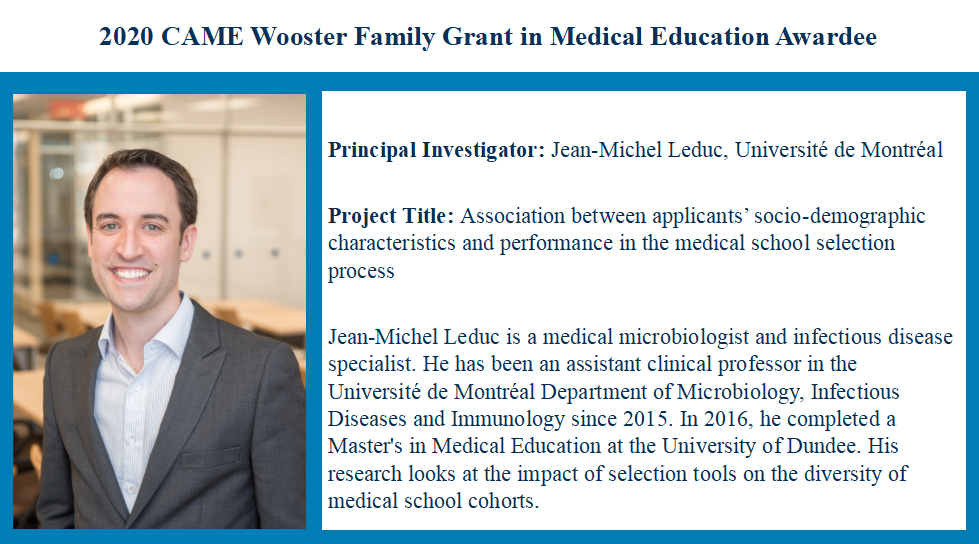
Congratulations to Dr. Jean-Michel Leduc on this wonderful achievement! Stay tuned to the CAME website for more information in the months to come!
CAME Foundation Wooster Family Grant in Medical Education Winners 2019!
The CAME Foundation is happy to announce the successful winners of the CAME Foundation Wooster Family Grant in Medical Education for 2019!
The grant, announced at CCME 2015 was created after a donation was received from the Wooster Family, and the CAME Foundation was tasked with raising matching funds. The Wooster Family felt that there was a need for additional funding as opportunities for peer-reviewed grant support in medical education are limited. Emerging educators and those with new unfunded projects are particularly challenged in attracting support at these critical times.
This award is meant to support new and innovative projects in medical education that are not part of a larger, formalized and funded education research program.
The following individuals and their projects have been selected as the 2019 recipients of the CAME Foundation Wooster Family Grant in Medical Education:
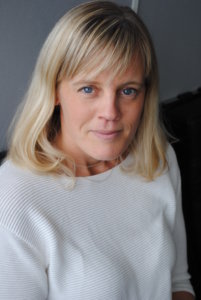 Dr. Maria Hubinette
Dr. Maria Hubinette
Project Title: Causes and Consequences of Moral Distress and Burnout in Medical Students—Developing an Agenda for Improvement’
Dr. Maria Hubinette is a community-based family physician with special interest in youth and women’s health. She has completed a Masters of Medical Education and is a Clinical Professor in the Department of Family Practice at UBC. Dr. Hubinette holds education leadership roles in the undergraduate (Family Medicine Undergraduate Programs Director; Lead Faculty, Portfolio, MD Undergraduate Program and Theme Lead, Health Advocacy and Social Determinants of Health, MD Undergraduate Program) and postgraduate (Lead Faculty, Curriculum, Family Medicine Postgraduate Program) programs.
Dr. Hubinette’s scholarly and professional activity focuses on health advocacy, social responsibility of the medical profession, and professional identity formation of learners. Research activities focus on exploring how health advocacy is understood by preceptors, trainees, and community organizations, how these concepts translate to health advocacy activities, patient perspectives on medical education in health advocacy, social responsibility, and advocacy for, and with, students and residents. Her education leadership activities center on building a broader perspective on health and an awareness by learners of the social determinants of health as well as fostering learning that promotes inquiry, reflection and integration. Engaging learners in a two-way dialogue around learning provides innovation to this process. Dr. Hubinette also enjoys engaging in mentorship and supervision of education scholarship projects for medical undergraduate students and family medicine residents.
Outside of the office, Maria enjoys cruising the coastal waters of BC aboard her sailboat, Dengue (yes, as in the fever) and spending time with friends and family.
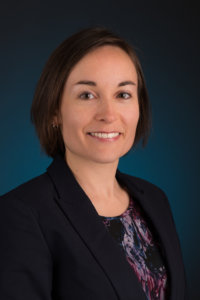 Dr. Miriam Lacasse
Dr. Miriam Lacasse
Project Title: Development and validation of a feedback form in French for the direct observation of residents in family medicine programs in Canada – Phase 1: Needs study and content validation
Miriam Lacasse is a family physician and associate professor at Université Laval’s Department of Family and Emergency Medicine. She received her Doctor of Medicine and Master’s in Experimental Medicine from Université Laval in 2005, where she also completed her family medicine residency in 2007. She then completed the Academic Fellowship Program of the Department of Family and Community Medicine at the University of Toronto in 2009. In addition to her clinical work as a family physician at the Laurier Academic Family Medicine Group in Quebec City, she is very involved in the clinical training of family medicine residents.
Since January 2017, she has been co-directing the QMA-CMA-MD Chair of Educational Leadership in Health Sciences Education, whose mandate is to support health sciences training programs in their adoption of a scholarship of teaching and learning approach and to contribute to the teaching of health sciences education by implementing innovative practices in collaboration with health sciences faculty members. She has also been the Family medicine residency program Assessment Director since 2009. Her research focuses primarily on competency assessment and learners in difficulty in health sciences education.
Direct observation is an important component of competency-based assessment. There are currently several assessment tools for direct observation, most published in English, but validity and benefits are highly variable. Most tools are poorly adapted to Canadian family medicine programs. Furthermore, since no validated tool is available in French to document feedback during direct observation, each program or site uses locally developed tools.
Dr. Lacasse and her team will therefore be developing and validating a French feedback tool for family medicine residency training. The funded project is a needs assessment about the content and format for direct observation feedback documentation tools, that will involve a literature review and focus groups with participants from all Canadian family medicine programs with francophone sites (Laval University, McGill University, Université de Montréal, Université d’Ottawa and Université de Sherbrooke).
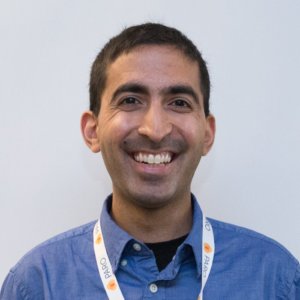 Dr. Kaif Pardhan
Dr. Kaif Pardhan
Project Title: Perceptions of assessment and feedback: hawks, doves and impact on learning.
Dr. Pardhan is a staff emergency physician at Sunnybrook Health Sciences Centre and McMaster Children’s Hospital. He also holds academic appointments as a Lecturer in the Division of Emergency Medicine in the University of Toronto (U of T) Department of Medicine and Assistant Clinical Professor appointment at McMaster University in the Division of Pediatric Emergency Medicine, Department of Pediatrics. He currently holds the position of Assistant Program Director of the U of T Emergency Medicine Residency Program and Director of Clinical Operations in the Department of Emergency Services at Sunnybrook. Dr. Pardhan’s academic and scholarly focus is on medical education and education policy. He is particularly interested in the assessment of trainees and supervisors, physician leadership and transition to practice. His current research projects include examining supervision and assessment in the transition to practice, tools to increase the number of evaluations received by clinical faculty members from trainees, and how stringent versus lenient feedback impacts learning.
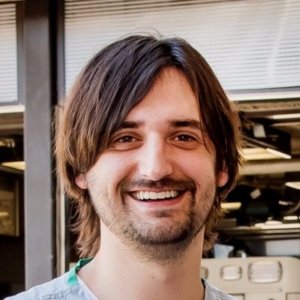 Dr. Brent Thoma
Dr. Brent Thoma
Project Title: Determining the essential elements of dashboards to foster competency committee decision making using competency-based assessment data
Dr. Brent Thoma is an Assistant Professor at the University of Saskatchewan where he works as an emergency physician, trauma team leader, and medical education researcher. Over the past two years he has worked to facilitate emergency medicine’s Competence By Design (CBD) rollout at the University of Saskatchewan as a CBD Lead, Program Director, and Specialty Committee Member. He is the Vice Chair for the Royal College ‘Clinician Educator’ Area of Focused Competence Committee. His research on technology-enhanced learning has recently been focusing on the utilization of learning analytics within competency-based assessment. His project, “Determining the essential elements of dashboards to foster competency committee decision making using competency-based assessment data” aims to develop data presentation and visualization techniques for CBD data that will support the decisions of competency committees.
Congratulations to Drs. Maria Hubinette, Miriam Lacasse, Kaif Pardhan and Brent Thoma on this wonderful achievement!
Stay tuned to the CAME website for more information in the months to come!
CAME Foundation Wooster Family Grant in Medical Education Winners 2018!
The CAME Foundation is happy to announce the successful winners of the CAME Foundation Wooster Family Grant in Medical Education for 2018!
The grant, announced at CCME 2015 was created after a donation was received from the Wooster Family, and the CAME Foundation was tasked with raising matching funds. The Wooster Family felt that there was a need for additional funding as opportunities for peer-reviewed grant support in medical education are limited. Emerging educators and those with new unfunded projects are particularly challenged in attracting support at these critical times.
This award is meant to support new and innovative projects in medical education that are not part of a larger, formalized and funded education research program.
The following individuals and their projects have been selected as the 2018 recipients of the CAME Foundation Wooster Family Grant in Medical Education:
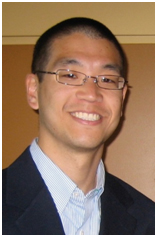 Warren J. Cheung MD, MMEd, FRCPC
Warren J. Cheung MD, MMEd, FRCPC
Dr. Cheung obtained his MD from the University of Toronto in 2009 and completed his Royal College residency training in Emergency Medicine at the University of Ottawa in 2014. He subsequently completed an Education Research Fellowship with the Department of Innovation in Medical Education at the University of Ottawa and received his Masters in Medical Education from the University of Dundee in 2016.
Dr. Cheung is an Assistant Professor and Director of Assessment in the Department of Emergency Medicine, University of Ottawa, and a Senior Clinician Investigator at the Ottawa Hospital Research Institute. He currently holds a University of Ottawa Faculty of Medicine Junior Clinical Research Chair in Medical Education, and serves as a CanMEDS Clinician Educator with the Royal College of Physicians and Surgeons of Canada. His research focuses on improving the quality of trainee assessments within a competency-based framework, with particular interests in studying workplace-based assessments and direct observation of performance.
Project Title: Ready to Run the Show: Development of a New Instrument for Assessing Resident Competence in the Emergency Department
The emergency department (ED) is a unique clinical microsystem where residents train and learn to care for the acutely ill. While many workplace-based assessments (WBAs) designed to assess resident performance in the ED exist, the quality of assessments is generally poor, and many tools lack validity evidence. To that end, there is still a need for a tool with strong validity evidence that can be used to assess the performance of a resident during an entire ED shift and determine their readiness for unsupervised practice.
A major threat to the validity of many existing WBAs has been the lack of alignment between how supervisors cognitively construct judgments of a trainee and the way in which they are expected to document these judgments. Recent literature suggests that construct-aligned scales, such as those based on entrustment, can improve score reliability and provide more discriminating ratings.
The purpose of our study is to develop and gather validity evidence for a novel tool that incorporates an entrustability scale to assess resident performance during an entire ED shift. Our objective is to design a tool with the following characteristics:
-
Items are self-explanatory and understood by front-line clinical supervisors
-
The tool demonstrates reliable ratings
-
The tool is able to discriminate between junior, mid-level and senior residents
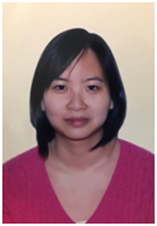 Tammy Shaw, MD, CCFP, FRCPC, Clinical Scholar, Department of Medicine, University of Ottawa
Tammy Shaw, MD, CCFP, FRCPC, Clinical Scholar, Department of Medicine, University of Ottawa
Tammy obtained her medical degree from Queen’s University. She subsequently completed residencies in Family Medicine and General Internal Medicine at the University of Toronto followed by a clinical fellowship in Obstetric Medicine at the University of Calgary. She is currently a practising General Internist with an interest in Obstetric Medicine and is enrolled in the Master’s of Education program at the University of Dundee.
The project entitled “Learner Handover: How does it influence assessment?” seeks to determine the extent prior performance information of a trainee influences the opinions and assessment of that trainee. With the guidance of her supervisor, Dr. Susan Humphrey-Murto, and co-investigators, Drs. Claire Touchie, Debra Pugh and Timothy J. Wood, she hopes to pursue this area as the topic of her Master’s thesis.
Congratulations to Dr. Cheung and Dr. Shaw on this wonderful achievement!


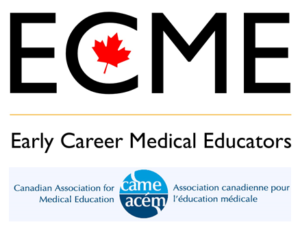 ECME is pleased to announce the call for 2019 nominations for our two awards.
ECME is pleased to announce the call for 2019 nominations for our two awards.